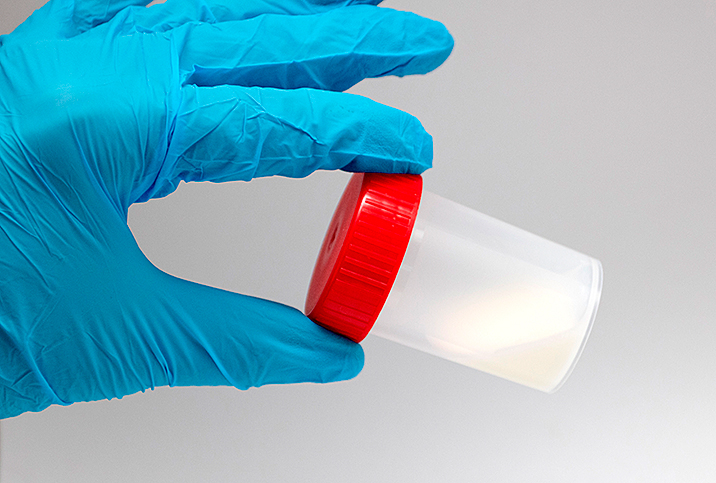Improving Men's Fertility

Male fertility is a factor in about 35 percent of cases where couples experience difficulty getting pregnant after six or more months of unprotected sex. There are many factors in your fertility: Some you have direct control over, others you do not.
You might take your fertility for granted, assuming that you're good to go, as many people do. And it's very possible you went to a lot of effort using birth control to avoid an unwanted pregnancy before you and your partner decided to have children. So it might come as a shock when you realize you might not be as fertile as you believed.
But this does not mean you will never be able to father children.
When you and your partner are trying to conceive, your fertility (and hers) is going to be at the core of your success. You may not know everything there is to know about male fertility, so we'll try to provide some answers to let you know where to turn and what to ask if you and your partner need help.
Overview of male fertility
The first question to ask is, what exactly is male fertility? The simplest answer is that it's your ability to contribute to conceiving a child.
Let's start with testosterone, a hormone that's a major player in male fertility, although follicle-stimulating hormones (FSH) and luteinizing hormones (LH) play important supporting roles. When testosterone, FSH and LH are at their proper levels, your ability to make and grow healthy sperm should be optimal.
After you produce healthy mature sperm, they need the wherewithal to get to your partner's fallopian tubes, where they can fertilize a mature egg.
The first part of the route your sperm takes from your testicles is through the epididymis, a tubal duct behind each of your testicles. From the epididymis, your sperm travels to another tubal system, called the vas deferens, and then the ejaculatory duct, which travels through the prostate, where sperm mixes with seminal fluid (from the seminal vesicles) to produce semen. Semen is the fluid that carries your sperm to its intended target once you ejaculate.
It may sound easy, but an impediment in any part of this elaborate process can affect your fertility.
Mostly, though, male fertility depends on the quality and quantity of sperm in semen. For you to be fertile enough to impregnate your partner, you must have at least 15 million sperm per milliliter of semen. If your semen has a sperm concentration lower than this, it's going to be harder for conception to be successful, but not impossible.
In addition to an adequate quantity of sperm in your semen, it must be of high quality. Your sperm's quality is defined by its shape, structure and movement (motility).
The quality of your sperm's motility is determined by the percentage of sperm moving in your semen. Your sperm have good motility if at least 40 percent of them are moving in your semen. For optimal motility, your sperm should be oval-shaped with long tails.
How lifestyle and age matter
Lifestyle choices matter, but one of the toughest factors to overcome is age. Most older men are less fertile than younger men, so if you are an older male, you're probably going to run into more issues and have more obstacles to overcome.
While you can't change your age, you have almost total control over your lifestyle choices, and this is a great place to start impacting your fertility.
We should start with stress, as that can have a profoundly negative effect on male fertility. Psychological stress has been linked with reduced levels of LH and testosterone, and that has a direct impact on your ability to make and grow healthy sperm. Additionally, if you have had serious viral infections, including COVID-19, at any time during your life, your fertility may have been adversely affected.
Here's some advice you're going to like. A natural way to improve your fertility is to have sex with your partner more often: The longer you abstain from having sex, the lower the quality of the sperm you produce. During your partner's fertile window—about 12 days before ovulation—you should be having sex every other day to improve your chances of successful conception. And you should make sure you schedule regular sex so that you keep the quality of your sperm at its best.
Another way to naturally improve your fertility is to keep your scrotum at the optimal temperature for healthy sperm production, which is a few degrees lower than normal body temperature. If you engage in intense exercise on a regular basis, if you sit for long periods of time with a computer on your lap or if you wear snug-fitting underwear, you are in danger of overheating your testicles. The best advice: Set a cool-down period after exercise, invest in a small desk for your laptop and start wearing boxers.
Your testicles will thank you.
As we're on the subject of exercise, you don't have to have an intense workout schedule to keep healthy. Walking is a good moderate exercise you can do regularly. Whether you take a 30-minute walk around the neighborhood or take your dog out to play in a park, it is not difficult to get a quality walk in every day. An added benefit of walking outdoors is that you may also lower stress levels by spending time in nature.
It's recommended that around 150 minutes of exercise per week is a good minimum to keep up for a healthy body.
What you eat and what you drink matters
Your choice of diet can make a huge difference in your fertility. Yes, we're talking about food, but also all the other substances you ingest in the course of a day, from alcohol to tobacco to prescription and recreational drugs.
There's no question that you should completely eliminate recreational drugs and tobacco from your daily regimen. You may also want to consider not drinking alcohol, or at least dropping intake to one or two drinks per week.
Other drugs can have negative effects, too. For example, the anabolic steroids that are part of your physical conditioning regimen may not be good for your fertility. Also, any kind of testosterone supplementation will interfere—sometimes irreversibly—with your body's normal hormone levels needed to produce sperm. Talk to your urologist before you continue taking any supplements; if you are advised to quit supplements, you may find it takes months before your sperm production is back to normal.
Striving for a better diet and a healthy weight is another lifestyle change that can be made to improve male fertility. As you pack on pounds, your body can get out of balance hormonally, and that can reduce sperm production and quality.
Now, let's get this straight: This is a reversible issue. A good diet and regular, moderate exercise can get your excess weight off and help restore your body's normal hormone levels. A good strategy is to think about changing your diet to the Mediterranean diet, which consists of lots of fresh and frozen fruits and vegetables, smaller portions of lean meat and fish, single-serving portions of whole grains, healthy fats, and nuts and seeds.
Medical treatments for improved male fertility
If you've already undergone natural treatments and made lifestyle changes to improve your fertility and you and your partner are still unable to conceive, you should consider medical intervention.
Get a referral from your primary care physician to see a urologist with experience in fertility issues. Your urologist will carry out the initial examinations, analyze the results and suggest a variety of procedures to improve your fertility.
Medication may be the first step, and you could be prescribed a medication with a hormonal effect that produces more FSH levels to increase sperm production.
Another medical procedure that might be suggested is artificial insemination, especially if your sperm count is low or your sperm have motility of less than 40 percent. The basic procedure is that you provide a semen sample that undergoes a process to select only the best-quality sperm, which will be transferred directly into your partner's uterus when she is ovulating.
In vitro fertilization (IVF) is another medical treatment that can work with low fertility. As with artificial insemination, your sperm is "cleaned" so that only the highest-quality sperm is left, and this is used to fertilize your partner's ova—the egg removed from your partner's ovaries—to create an embryo. Once the embryo is formed, it is returned to your partner's uterus.
If you are not able to provide a quality sperm sample because of genetic defects or because you've had a vasectomy, your urologist can surgically remove sperm from your testicles to get a good sperm sample.
Outlook for improved male fertility
If your fertility issues are related to your lifestyle, it may take a little time, hard work and patience, but your chances of improving your fertility are excellent.
When your fertility is affected by medical issues out of your control, the outlook is mixed. Medical interventions to help conception can be successful, but success can come with a high price tag, a lot of frustration and a long period of time.
Sometimes medical treatments are never successful, and that can be very disappointing for both you and your partner. However, as you're trying to improve your chances of conceiving, you've also been working on your Plan B. If you're truly committed to having a family and raising children together, there are many avenues to try that are just as satisfying, such as fostering and adoption.


















